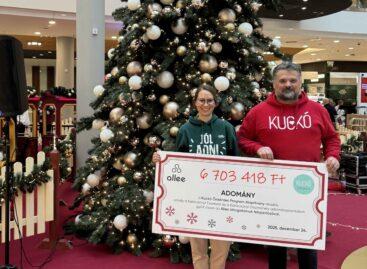On the occasion of World Animal Day, MARS supports domestic shelters with a monetary donation and volunteers
During the period of the coronavirus epidemic, people’s need for pet ownership increased because during the lockdowns and isolation due to the restrictions, a part of the population became lonely and felt that a pet could possibly alleviate the feeling of being alone.

Animal shelters are in an even more difficult situation than usual
Some of the new pet owners were unable to properly care for their pets in the post-epidemic period, so some of the animals returned to their pre-epidemic locations, as a result of which the shelters are now overburdened, and their increased costs make their operations significantly more difficult. In order to alleviate the problem, on the occasion of World Animal Day, the MARS company is helping two domestic shelters with a monetary donation of nearly HUF 1.5 million and the involvement of its own volunteers.
The majority of domestic pet owners did not acquire an animal through a well-thought-out selection process, but received it from a friend (21.7%), received it as a gift (22.1%), received it from the street (7.4%), or inherited it (2% ) – reveals Hungarian dog-keeping habits during the COVID-19 pandemic from the 2021 nationwide representative survey. The research showed that the human-animal dynamic changed during the epidemic, where it became stronger, where it became filled with tension, and due to the long-term confinement, the home environment became the main and in many cases the only place for family activities. Some of the animals that found new owners were successfully integrated into the lives of their families, but unfortunately most of them returned to the streets or shelters after the closures ended. During the restrictions, the deterioration of the individual’s quality of life and well-being brought with it the parallel deterioration of the quality of life of their pets and the appearance of behavioral disorders.
The shelters thus fell on the responsibility of taking in animals that became homeless again, which is now a problem for some animal shelters. the animals require serious medical intervention and, of course, daily care.
Related news
6.7 million forints raised in Allee’s charity initiative
🎧 Hallgasd a cikket: Lejátszás Szünet Folytatás Leállítás Nyelv: Auto…
Read more >We took you on a flight! (Part 2)
🎧 Hallgasd a cikket: Lejátszás Szünet Folytatás Leállítás Nyelv: Auto…
Read more >Related news
NKFH: inspections focus on discount prices and customer deception
🎧 Hallgasd a cikket: Lejátszás Szünet Folytatás Leállítás Nyelv: Auto…
Read more >







